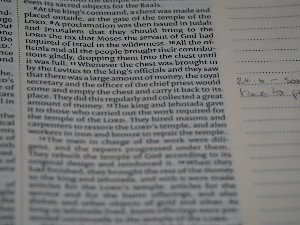Oskar Goliński
Królestwo anarchii. W poszukiwaniu nowożytnych wyobrażeń o Rzeczypospolitej i jej mieszkańcach
Introduction
Królestwo anarchii. W poszukiwaniu nowożytnych wyobrażeń o rzeczypospolitej i jej mieszkańcach. Badanie wczesnonowożytnych wyobrażeń o Rzeczypospolitej Obojga Narodów i jej mieszkańcach. Analiza pojęcia "królestwa anarchii" w kontekście historycznym.
Abstract
Review
The title, "Królestwo anarchii. W poszukiwaniu nowożytnych wyobrażeń o Rzeczypospolitej i jej mieszkańcach" (The Kingdom of Anarchy: In Search of Early Modern Perceptions of the Commonwealth and its Inhabitants), immediately signals a highly relevant and enduring theme in the historiography of the Polish-Lithuanian Commonwealth. The exploration of how the Rzeczpospolita was perceived, both internally and externally, through the lens of the often-pejorative "Kingdom of Anarchy" trope is crucial for understanding not only historical political discourse but also the construction of national identity and the reception of a unique political system. This topic promises to delve into the complex interplay of historical narratives, political ideology, and the often-contentious legacy of the Commonwealth's golden age and eventual decline. Should the paper effectively unpack the origins, evolution, and impact of the "Kingdom of Anarchy" concept, it holds the potential to offer significant contributions to the field. A nuanced analysis of "nowożytne wyobrażenia" (early modern perceptions) could challenge simplistic or anachronistic interpretations of the Commonwealth's political culture, moving beyond a mere acceptance of the trope as a descriptive fact. Furthermore, by examining the views of "jej mieszkańcy" (its inhabitants), the study could provide valuable insights into self-perceptions, internal debates, and the complexities of civic identity within a multi-ethnic and multi-confessional state. Such an approach, if realized, could deepen our understanding of political discourse and the contested nature of political stability in early modern Europe. However, a comprehensive and meaningful evaluation of this paper is profoundly hampered by the complete absence of an abstract. Without this essential component, it is impossible for a reviewer to ascertain the specific research questions driving the study, the methodological framework employed, the nature and scope of primary sources consulted, or the key arguments and findings presented. Critical questions remain unaddressed: Which specific chronological span within the "early modern" period is the focus? Whose perceptions – foreign observers, domestic reformers, gentry, or others – are prioritized? How is "anarchy" specifically defined and contextualized within the analysis? While the title suggests a promising and timely inquiry, the lack of an abstract renders any assessment of the paper's scholarly rigor, originality, and overall contribution impossible, making it challenging to recommend for publication without further information.
Full Text
You need to be logged in to view the full text and Download file of this article - Królestwo anarchii. W poszukiwaniu nowożytnych wyobrażeń o Rzeczypospolitej i jej mieszkańcach from Studia Historyczne .
Login to View Full Text And DownloadComments
You need to be logged in to post a comment.
Top Blogs by Rating
Electro-Pulse: Unveiling the U...
By Sciaria
The Invisible Architects: Are...
By Sciaria
Are You Just a Colony? The Int...
By Sciaria
Favorite Blog
Bending Light, Shaping Reality...
By Sciaria
Beyond the Stereotype: Unpacki...
By Sciaria
The Gamification of Governance...
By Sciaria
Related Research
Systeeminen malli ja suhdeperustainen käytäntö gerontologisessa sosiaalityössä ja sosiaaliohjauksessa
Studi literatur “menjawab tantangan keperawatan gawat darurat dan kritis”
Mechanical performance of epoxy composite reinforced with wood dust and crumb rubber waste
Share
Notice Board
- A NEW OPPORTUNITY RELATED HYPERCHOLESTEROLEMIC AND THE IMPROVEMENT OF GLUCOSE LEVELS, LIPID PROFILES, AND MICROBIAL ACTIVITY: RED DRAGON FRUIT (HYLOCEREUS POLYRHIZUS) PEEL YOGURT AND ANIMAL STUDY
- NEED ANALYSIS OF GREEN CHEMISTRY-BASED PRACTICUM GUIDELINES INCORPORATING LOCAL WISDOM ON REDOX TOPIC
- IMPROVEMENT SKILLS HUSBAND- WIFE COMMUNICATION THROUGH GUIDANCE FAMILY TO THE PKK MOTHERS OF RT.1/RW.1 KENTENG VILLAGE





